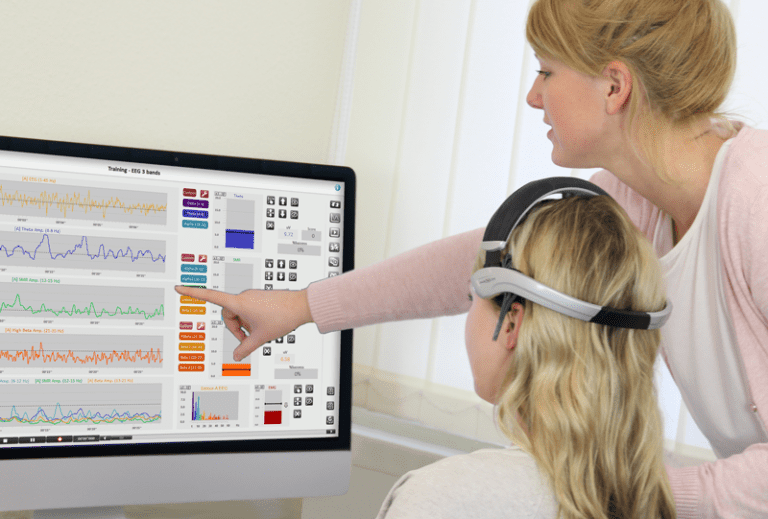ADHD treatments
When it comes to ADHD treatment, there are many options. From medication to various therapies, there are many different ways to help people with ADHD manage their symptoms. But what about neurofeedback? Keep reading to find out how this effective treatment may be beneficial to you or your child.
Neurofeedback for ADHD
Neurofeedback is a type of biofeedback therapy that uses real-time measurements of brain activity to help individuals manage their symptoms. Neurofeedback is a type of therapy that has been used for decades in the treatment of mental health issues such as depression and anxiety.
How does neurofeedback for ADHD work? In neurofeedback training, the individual wears an EEG cap (electroencephalograph) that records brain waves. Their personal brain trainer then uses this information to create a personalized feedback loop that allows them to learn how to regulate their brain activity.
Neurofeedback has been shown to increase focus and reduce impulsivity in children and adults with ADHD. It also helps people manage anxiety, depression, learning disorders, and insomnia.
ADHD around the holidays
If you have ADHD, the holidays can be a stressful time. The pressure of shopping, planning, and entertaining can cause feelings of anxiety and overwhelm.
For parents of children or teens with ADHD, it is an important time to manage expectations and behavior. Most importantly, we want our families to enjoy the holiday season.
Many strategies may help both adults and kids with ADHD around the holidays.
Here is just a short list of things you can do to help your family cope during the holidays:
-Plan ahead; involve your child in discussions and planning where age appropriate;
-Manage expectations; these may be your expectations, family expectations, or those of your child;
-Be kind to yourself; even the best-laid plans don’t always work out how you expected, and that’s okay!
If neurofeedback training is something that you are considering for yourself or your child, it’s important to know that it requires a longer-term commitment. This type of therapy is not a one-time-only quick-fix solution. You will need to be prepared to sit down for multiple sessions over several months, like going to the gym to improve your fitness.
If you would like to read more on the efficacy of neurofeedback in regulating brain functions, these research findings may be helpful.
Many people have seen the benefits of committing to neurofeedback sessions. People with ADHD have seen improvements in attention and a lessened feeling of anxiety.
You don’t have to manage these challenges alone. Reach out to us via our website or by phone to see how we can help you and your family. Neurofeedback therapy may be the right treatment for your child.
Sources:
https://www.ncbi.nlm.nih.gov/pmc/articles/PMC6538574/
https://www.additudemag.com/neurofeedback-therapy-treat-adhd/






